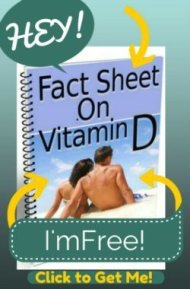Is Triclosan
In Antibacterial Soap
Making You Sick?
Triclosan, also called Irgasan and Microban, is the ingredient in antibacterial soap that makes it, well... antibacterial. It's been touted as practically a miracle, getting rid of what is making us sick. But is it keeping the germs at bay or is it just another
Environmental Toxin that is poorly studied, has unknown and possibly damaging effects to our health and immune system and is possibly creating drug resistance?
Triclosan was introduced as a Handwashing ingredient in hospitals in 1972. Since then it has been introduced into consumer products on a large scale.
You can find it in just about everything, from the ever present antibacterial soap to lotions, clothing, bedding, childrens toys, toilet seats and even carpeting. Study after study has shown that there is no useful reason to have it in household products.
The FDA, CDC, AMA, Health Canada and other governmental organizations have consistently stated that there is no benefit to handwashing with antibacterial soap to reduce illness in healthy people. At least one study has even shown that because of the drying and irritating effects of antibacterial soaps on the Skin , the levels of harmful bacteria was increased in health care workers after numerous handwashings - INCREASED!
No benefit and possible harm
In 1978, the FDA showed concern that antibacterial soaps could cause the development of drug resistant organisms like MRSA. Since that time, the use of these toxic chemicals has grown immensely - right along with the growth of Multiple Drug Resistant Organisms like MRSA!
In fact, a study from Tufts University in 2000 stated,
"The data clearly suggest that antibacterial agents
will have an impact on the environmental flora
and on resistance emergence."
Note the use of the word 'will' - not 'might' have an impact, but 'WILL'! Other studies show that the effects of the large amount of antibacterial agents is negatively affecting waterways. According to the Danish Environmental Protection Agency, it is
“extremely persistent and highly toxic in the marine environment”
In waterways, antibacterial soaps significantly affect algae growth and has been shown to alter the development of fish. Also, when it gets exposed to sunlight, it rapidly degrades into dioxins. Dioxins are potent toxins classified as 'likely to be carcinogenic (cancer-causing)'by the EPA.
These dioxins, as well as triclosan itself, bioaccumulate in tissues, meaning that we tend not to excrete these environmental toxins but store them in our fat. This could potentially magnify any health effects that they may cause.
Toxic Chemicals
in Your Home
When combined with chlorine, antibacterials used in personal products turn into the toxic chemical Chloroform. Chloroform is a chemical carcinogen that is absorbed by ingesting it, absorbing it through the skin or inhaling it.
Why is this a concern for us?
Most household water contains chlorine from disinfection at water treatment plants and many households also use chlorine bleach for surface cleaning and washing clothes.
And it only takes a small amount of each to produce a significant amount of chloroform.
The research that has been done was performed under 'household' conditions using actual Triclosan containing products and household tap water. Chloroform was detected in levels that were potentially significant to human health.
And while that might not be so alarming, Triclosan has been found in 3 out of 5 random samples of breast milk as well as 75% of urine samples. Studies have not shown that it causes harm to humans (as yet), but it is definitely being absorbed into our bodies. While no one is willing to say that Triclosan is harming anyone, just about everyone, except the cosmetics industry, IS saying that it's worthless.
So, considering that this potentially toxic chemical:
- Doesn't prevent illness
- Encourages the development of Drug Resistant Organisms
- Forms carcinogenic compounds when used normally
- Is being absorbed into our bodies
- Destroys aquatic marine life
- Destroys the Good Bacteria in your intestines
Is there really any good reason to be using it in your home?
Maybe there is.... But I can't think of any.
Next --->
Environmental Toxins
Back To Top of Triclosan Page
To Easy Immune Health Home Page





